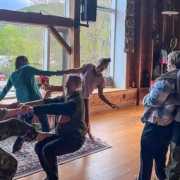Telling Our Story
Telling My Story is an exploration of our shared humanity through the use of the arts, storytelling, and performance. We have worked with many communities including people incarcerated, immigrant women, women in recovery from substance use, students, and many more. By bringing disconnected communities together, we work to break down visible and invisible social walls. We strive to create a space in which participants can face and embrace the truth of our collective realities to nurture a possibilitarian spirit. We cultivate trust by taking leaps of faith with one another, deconstructing the social walls that separate us so we can build the spaces we long for. The walls will appear and disappear, but our critical presence will confront them and resist them. Doing and being together are the engines for listening and speaking with a more daring, liberating, and refreshing conscience. Maybe that is what a leap of faith really is?
We are excited to be starting a new chapter of our work. What used to take place in a classroom at Dartmouth, is now available to the broader community. For this change, we are training Telling My Story facilitators. Our hope is to create more spaces for public discussion about the root causes of seemingly intractable social issues and the impacts on individuals, families, and the larger community.
Listening is an integral part of impactful storytelling. It is rare that we truly listen to each other, however, when we do, transformation is possible. Our hope is that our work will help participants strengthen their voice and deepen the quality of their listening. Our hope is that they share their stories and honor the stories of others. This is crucial in the world we live in, as we each need to better understand our role in transforming social structures to serve everyone.
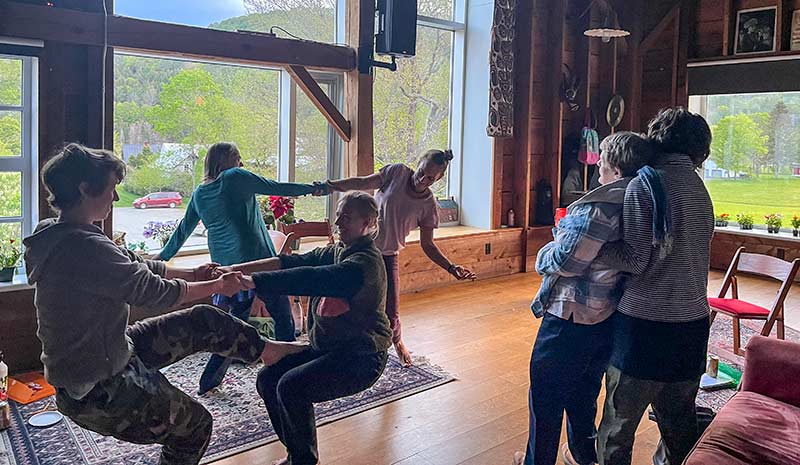 Earlier this year, we received funding from VTCHEP to adapt our Telling My Story program into two workshops for BIPOC and LGBTQIA2S+ community members and health providers to tell their stories about navigating health systems in the Upper Valley. As long as we have existed, we have worked to ensure our model is adaptable and can be used to tell stories from any perspective. This proved to be true in our work with the community in the Upper Valley. We hope to see the ripple effects of these workshops spread far and wide and lead to increased trust and understanding between our BIPOC and LGBTQIA2S+ community members and the health systems that are responsible for serving them. We have seen time and time again how our model creates connections and strengthens advocacy, and this was another example of the power of true human connection through storytelling, and also through doing, creating and imagining together, which highlights the importance of being with others with the intention of connecting to build stronger and more nurturing communities. We don’t want people to fit in in our community; we want us all to feel we belong.
Earlier this year, we received funding from VTCHEP to adapt our Telling My Story program into two workshops for BIPOC and LGBTQIA2S+ community members and health providers to tell their stories about navigating health systems in the Upper Valley. As long as we have existed, we have worked to ensure our model is adaptable and can be used to tell stories from any perspective. This proved to be true in our work with the community in the Upper Valley. We hope to see the ripple effects of these workshops spread far and wide and lead to increased trust and understanding between our BIPOC and LGBTQIA2S+ community members and the health systems that are responsible for serving them. We have seen time and time again how our model creates connections and strengthens advocacy, and this was another example of the power of true human connection through storytelling, and also through doing, creating and imagining together, which highlights the importance of being with others with the intention of connecting to build stronger and more nurturing communities. We don’t want people to fit in in our community; we want us all to feel we belong.
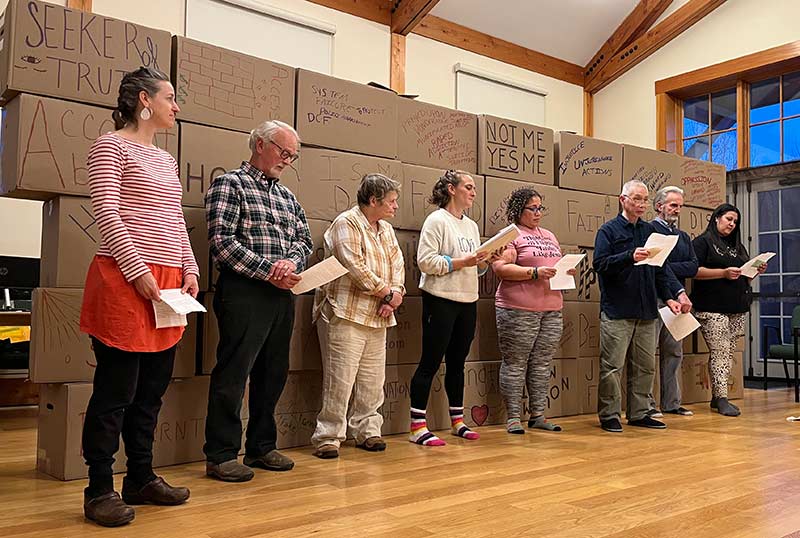 One of our participants said the following about taking part in TMS programming: I had the pleasure of participating in TMS twice, as a participant member of a marginalized group and as an activist for a group; both experiences were life changing. TMS gives participants the opportunity to feel pain, frustration, joy, and even anger in a safe supportive environment. TMS also provides a very visual representation of the immense privileges we have in all different spaces. I love the community presentation portion of the program for this very reason…it brings visibility to the invisible, allows light to shine in the dark places of our communities and towns!
One of our participants said the following about taking part in TMS programming: I had the pleasure of participating in TMS twice, as a participant member of a marginalized group and as an activist for a group; both experiences were life changing. TMS gives participants the opportunity to feel pain, frustration, joy, and even anger in a safe supportive environment. TMS also provides a very visual representation of the immense privileges we have in all different spaces. I love the community presentation portion of the program for this very reason…it brings visibility to the invisible, allows light to shine in the dark places of our communities and towns!
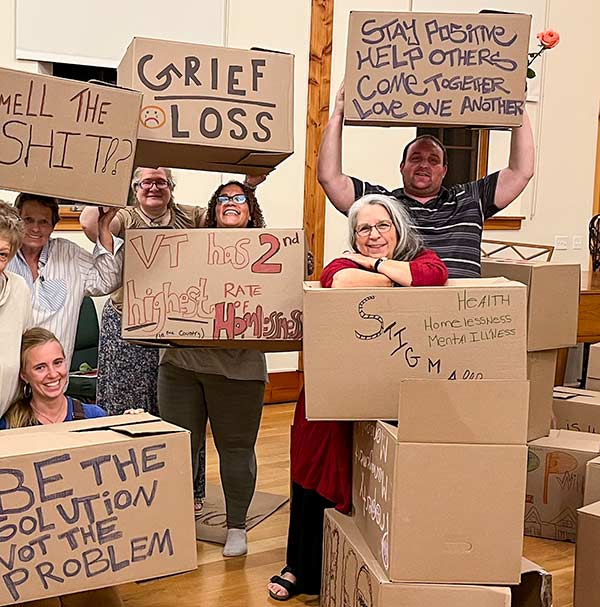 Another participant shared their experience: I have attended two TMS workshops, one online and another in-person. Both experiences were life changing. Imagine a group of about a dozen strangers who come from all socio-economic and cultural backgrounds for the purpose of addressing a social justice topic. Under Pati’s guidance we begin opening our hearts and minds to each other through various exercises. Our original shyness gives way to a shared sense of belongingness and purpose. This culminates in a public performance where each of us finds the courage to speak our truths in defiance of the many obstacles of poverty, racism, political division, homelessness, and fear. We all need a TMS experience to believe that social justice is possible when enough people speak truth to power.
Another participant shared their experience: I have attended two TMS workshops, one online and another in-person. Both experiences were life changing. Imagine a group of about a dozen strangers who come from all socio-economic and cultural backgrounds for the purpose of addressing a social justice topic. Under Pati’s guidance we begin opening our hearts and minds to each other through various exercises. Our original shyness gives way to a shared sense of belongingness and purpose. This culminates in a public performance where each of us finds the courage to speak our truths in defiance of the many obstacles of poverty, racism, political division, homelessness, and fear. We all need a TMS experience to believe that social justice is possible when enough people speak truth to power.
At the core, we are building new and radically inclusive communities. Through the act of being and doing with others, we learn about ourselves and cultivate our critical awareness and compassionate presence in society. We look forward to this next adventure and are excited to see the Upper Valley community take part in this important, transformational work.
